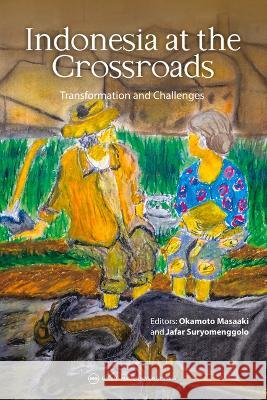Indonesia at the Crossroads: Transformation and Challenges » książka
Indonesia at the Crossroads: Transformation and Challenges
ISBN-13: 9781925608373 / Angielski
After a swift and bloody regime change in 1998, Indonesia established democratic institutions. Democratization over the first two decades of the 21st century fundamentally transformed Indonesia as a nation-state; and with a population of approximately 270 million as of 2020, Indonesia is the third largest democracy in the world. This book presents twelve original chapters to discuss the achievements and challenges of Indonesia's transformation since the fall of Suharto's authoritarian regime in 1998. The fundamental transformation from an authoritarian to a democratic system is analyzed by researchers, experts, and NGO officials from various academic disciplines and from Asia at large (Japan, Korea, and Indonesia). Specific topics include: how Reformasi changed the structure of the Indonesian state and affected the daily lives of its citizens; the extent to which the Indonesian economy has developed beyond economic indicators; why and what problems continue to exist despite institutional changes and the relative freedom of Indonesians. Part I, "Governance and Social Dynamics," includes four chapters describing changes in institutions and social conditions since democratization in 1998. Part 2, "Paths to Equality," presents four chapters that examine the economic context of development policies to address poverty, inequality, and productivity, which are critical for Indonesia to escape the middle-income country trap. Part III, "Structural Challenges," consists of four chapters that discuss corruption, human rights practices, and security and military reform. Each paper acknowledges the institutional development achieved by the Indonesian government since 1998, then addresses challenges that may impede democracy taking root in Indonesian society. The Indonesian experience of democratization is especially noteworthy in a context in which Islamic societies historically have struggled with democracy and as many neighboring Southeast Asian countries are becoming less democratic.











